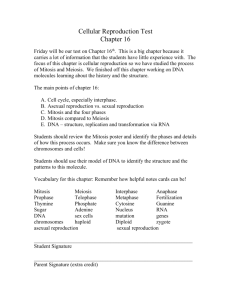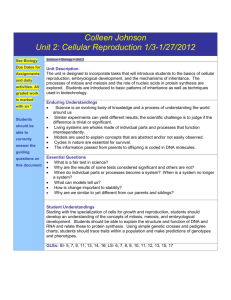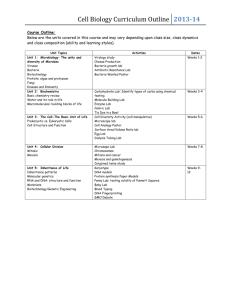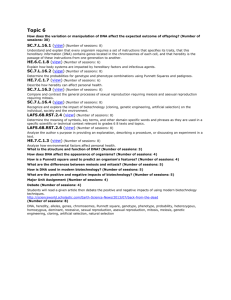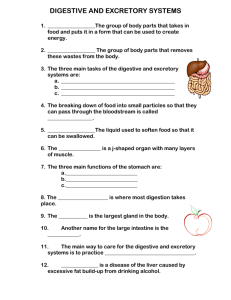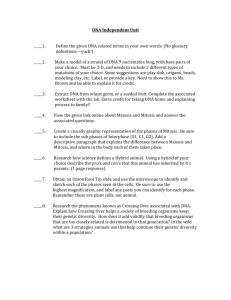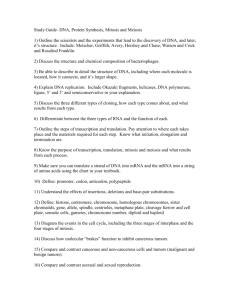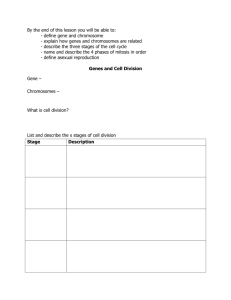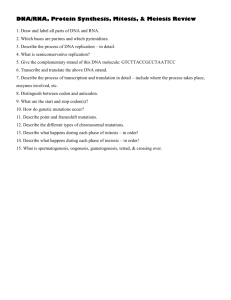Word Format - School Curriculum and Standards Authority
advertisement
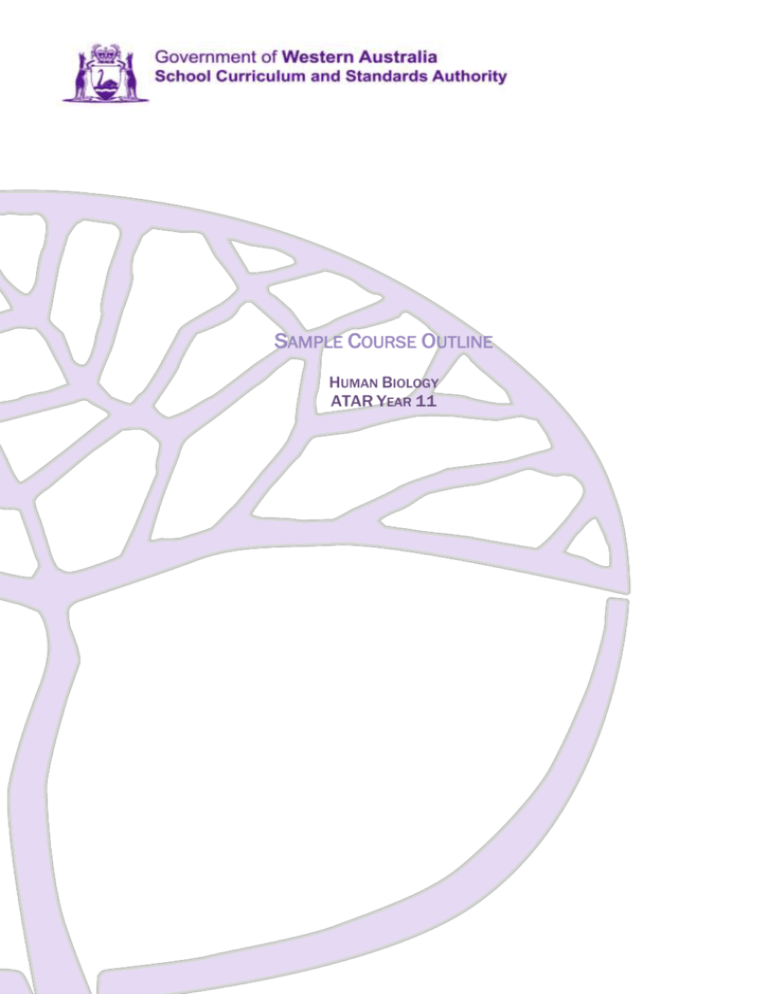
SAMPLE COURSE OUTLINE HUMAN BIOLOGY ATAR YEAR 11 Copyright © School Curriculum and Standards Authority, 2014 This document – apart from any third party copyright material contained in it – may be freely copied, or communicated on an intranet, for non-commercial purposes in educational institutions, provided that the School Curriculum and Standards Authority is acknowledged as the copyright owner, and that the Authority’s moral rights are not infringed. Copying or communication for any other purpose can be done only within the terms of the Copyright Act 1968 or with prior written permission of the School Curriculum and Standards Authority. Copying or communication of any third party copyright material can be done only within the terms of the Copyright Act 1968 or with permission of the copyright owners. Any content in this document that has been derived from the Australian Curriculum may be used under the terms of the Creative Commons Attribution-NonCommercial 3.0 Australia licence Disclaimer Any resources such as texts, websites and so on that may be referred to in this document are provided as examples of resources that teachers can use to support their learning programs. Their inclusion does not imply that they are mandatory or that they are the only resources relevant to the course. 2014/14185v5 1 Sample course outline Human Biology – ATAR Year 11 Unit 1 – The functioning human body Week 1–2 3–5 6 7–8 9–10 11–12 13–14 15 16 Key teaching points Cells and tissues Science inquiry skills: investigation/experimental techniques Cells Cell membrane Factors affecting exchange across cell membranes Tissues Metabolism Metabolism Cellular respiration Enzyme function Task 1: Practical – Enzyme function Task 2: Test – Metabolism and enzymes Task 3: Investigation – Cardiovascular health in teenagers (handed out) Respiratory system Structure of respiratory system Function of components of respiratory system Circulatory system Structure and function of the circulatory system Science Inquiry skills: heart dissection Components of blood Functions of the lymphatic system Task 3: Investigation – Cardiovascular health in teenagers (due in) Task 4: Test – Respiratory and circulatory systems Digestive system Structure and function of the digestive system Mechanical and chemical digestion Absorption of nutrients Elimination of wastes Task 5: Extended response – Cardiovascular diseases and treatments Task 6: Practical – Effect of digestive enzymes on food Excretory system Structure and function of the excretory system Skin, kidneys, liver and lungs Deamination of amino acids The three basic processes of the nephron Musculoskeletal system Structure and function of the musculoskeletal system Sliding filament theory Action of paired muscles Function of skeleton Joints Task 7: Test – Digestive and excretory systems Task 8: Extended response – Osteoporosis and osteoarthritis research assignment Revision Task 9: Test – Musculoskeletal system Task 10: Semester 1 examination Sample course outline | Human Biology | ATAR Year 11 2 Unit 2 – Reproduction and inheritance Week Key teaching points 1–4 DNA DNA – structure, properties and function DNA replication, protein synthesis Stem cells and epigenetics Task 11: Practical – Extraction of DNA from strawberries Task 12: Extended response – Gene expression Task 13: Test – DNA and protein synthesis 5–7 Cell reproduction Mitosis Meiosis Crossing over, non-disjunction, random assortment and variation due to these processes Difference between mitosis and meiosis Tumours/cancer Task 14: Practical – Ugly bugs: Modelling crossing over, non-disjunction, random assortment and gene linkage Task 15: Test – Mitosis and meiosis 8–10 Human reproduction Structure and function of reproductive system Menstrual and ovarian cycles Spermatogenesis and oogenesis Conception through to development of embryo Stages of labour and birth Task 16: Extended response – Reproductive technologies research assignment 11 12–14 15 16 Contraceptive methods STI’s Assisted reproductive technologies Genetic screening Types of inheritance Genotypes and phenotypes Punnett squares Dominance, co-dominance, autosomal and sex linked traits Pedigree charts DNA profiling Task 17: Test – Reproduction and inheritance Revision Task 18: Semester 2 examination Sample course outline | Human Biology | ATAR Year 11
